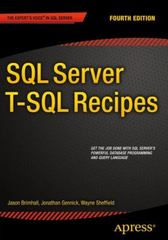Answered step by step
Verified Expert Solution
Question
1 Approved Answer
write the python code that implements this system and show which files the codes are in . let the python code run on the jupyter
write the python code that implements this system and show which files the codes are in let the python code run on the jupyter notebook
With a vision to enhance user experience and optimize resource allocation, we embark on the development of a Decision Support System DSS for our private study rooms. This project aims to provide a seamless and datadriven solution to manage and maximize the usage of our four private study rooms. The following project will delve into the development, implementation, and benefits of this innovative system designed to make every visit to the library a productive and enriching experience.
Type of DSS
What type of DSS are you planning to develop, modeldriven or knowledgedriven?
For the library project, we are planning to develop a datadriven Decision Support System DSS This datadriven DSS will assist in managing the reservation system for private study rooms by utilizing available data and predefined rules to optimize room allocation, booking processes, and reporting.
Input Data
What type of data will be incorporated in your DSS
Room Availability Data
Information on the current status of each study room, indicating whether it is available, reserved, or occupied.
Reservation Data:
Data related to reservations, including reservation date and time, user information, duration, and room allocation.
User Profile Data:
User information, such as names, contact details, and credentials, for authentication and user management.
Reservation Policies:
Rules and policies governing reservations, such as maximum reservation duration, booking limits and penalties for noshows.
Room Specifications:
Details about each study room, including capacity, equipment, and any special features that might influence reservation choices.
Notification Data:
Data related to notifications, such as email addresses for sending reservation reminders to users.
Usage Statistics:
Information on room utilization can include historical data on room bookings and occupancy rates.
How will the input data be collected?
User Inputs:
Users, including students and library staff, will directly input data into the system when making reservations or managing their profiles. This data will include reservation details, user information, and any changes or cancellations.
Administrative Inputs:
Library administrators and staff will have access to the system to manage room availability, review reservations, and generate reports. They will input data related to room status and policy updates.
Automated Data Feeds if applicable:
To keep room availability data uptodate, the system may integrate with room occupancy sensors or other automated systems that provide realtime information about room status. This integration can help maintain accurate availability data without manual intervention.
User Registration:
During the user registration process, users will provide personal information necessary for authentication, including their names and contact details.
The Potential Users
Describe your user. Who will be using your DSS
Students and Academic Staff:
Students from Ankara Science University and academic staff, including professors, researchers, and instructors, are primary users of the DSS They share the common goal of utilizing private study rooms within the library. Both students and academic staff will use the DSS for various purposes, including checking room availability, making reservations, modifying bookings, and receiving notifications regarding their reservations.
Library Administrative Staff:
Library administrative staff, which includes administrators, librarians, and support personnel, are responsible for overseeing and managing the reservation system. They play a crucial role in maintaining the system, monitoring room availability, addressing user queries or issues, and generating reports for administrative and operational purposes. These staff members ensure the smooth operation of the reservation system and support its users.
Use of Frequency
How often the potential users will use your DSS
Students and Academic Staff:
Students and academic staff may use the DSS as frequently as needed to reserve private study rooms in the library. The usage frequency depends on their individual requirements and academic schedules. Some students and academic staff may use the system daily, while others may use it less frequently, based on their study or work patterns.
Library Administrative Staff:
Library administrative staff will use the DSS regularly to manage the reservation system. They will access the system to monitor room availability, review and manage reservations, and generate reports. The frequency of use for administrative staff may be daily or several times a week, depending on the level of activity within the library and the need for system maintenance.
Step by Step Solution
There are 3 Steps involved in it
Step: 1

Get Instant Access to Expert-Tailored Solutions
See step-by-step solutions with expert insights and AI powered tools for academic success
Step: 2

Step: 3

Ace Your Homework with AI
Get the answers you need in no time with our AI-driven, step-by-step assistance
Get Started


